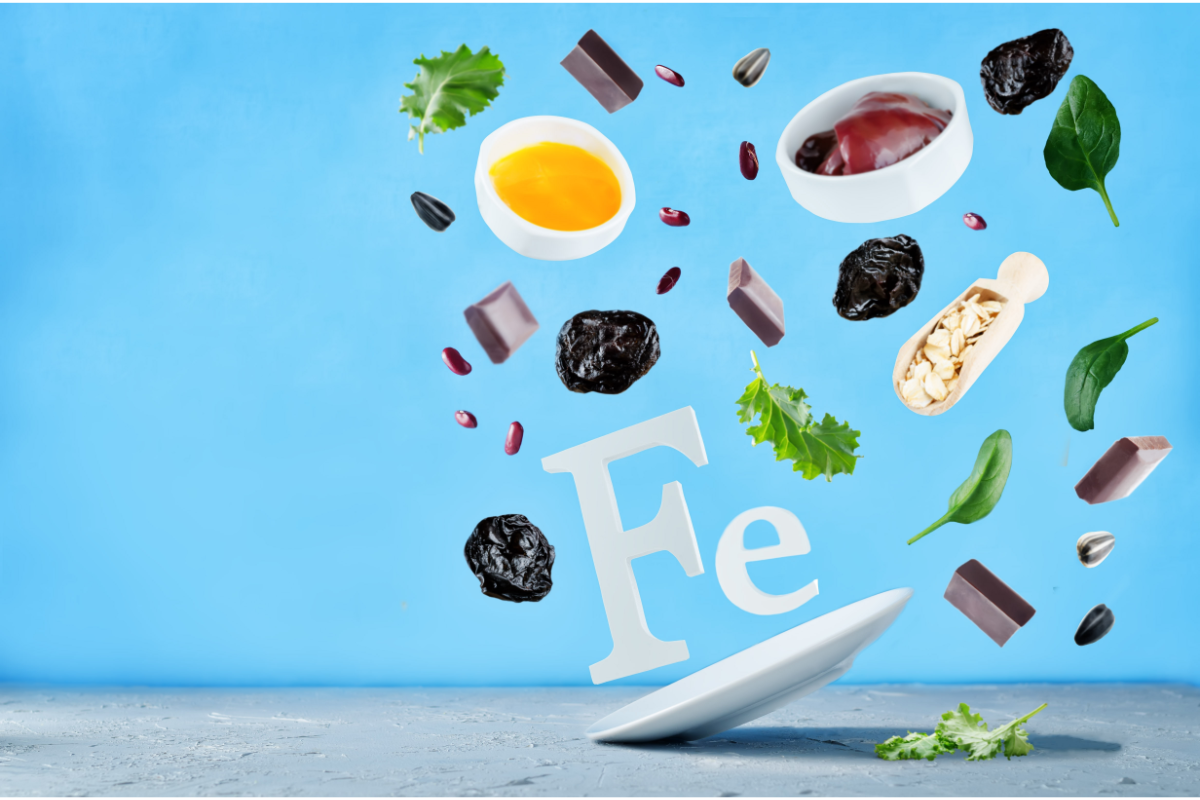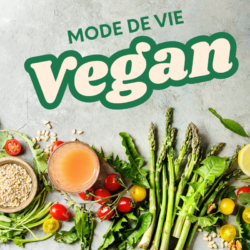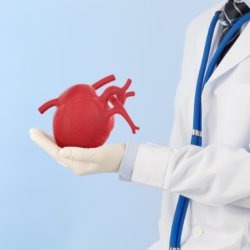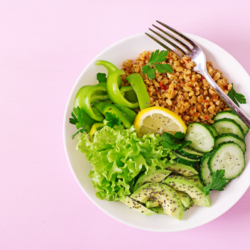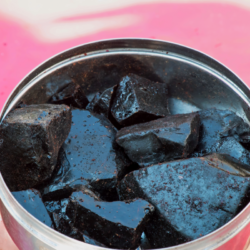Iron or Fe is essential to human life and health. This mineral plays an important role in the proper functioning of the body. However, it is not naturally produced by the body. But, rest assured, it’s easy to get enough of it from the foods we eat. In this article, we explore the benefits of iron and the best food sources for consuming it.
What does iron do?
Iron is an essential element for the human body, performing a number of vital functions. One of its most important functions is to transport oxygen throughout the body via haemoglobin, a protein found in red blood cells. Iron is also involved in the storage and transport of oxygen in muscle cells through myoglobin. In addition to these vital functions, iron also plays an important role in cognitive development, the synthesis of neurotransmitters, the manufacture of enzymes essential for DNA synthesis, and maintaining the proper functioning of the immune system. In the following paragraphs, we will explore in detail the different functions of iron in the human body.
Oxygen transport and binding :
Iron’s most important role is to transport oxygen from the lungs to all parts of the body. This is done through the blood vessels by means of haemoglobin. Haemoglobin is a protein found in red blood cells, of which iron is one of the main components.
Iron is also an oxygen fixative. To be more precise, it stores and transports oxygen in muscle cells via myoglobin. Like haemoglobin, myoglobin is a protein, but it is found in the muscles.
Maintenance and development of cognitive function:
Iron is also involved in brain development. In particular, it is involved in the manufacture of certain enzymes essential to the synthesis of various neurotransmitters, including dopamine, serotonin and norepinephrine. But apart from that, it also contributes to the manufacture of ribonucleotide reductase, an enzyme essential for DNA synthesis. That’s why it’s so important for pregnant women and children to have enough of it in their bodies.
Maintains a healthy immune system:
Iron plays a crucial role in maintaining a well-functioning immune system. This mineral is essential for regulating adaptive and innate immunity, the two main lines of defence in our immune system. These defence mechanisms are vital in protecting the body against various aggressions, such as viral and bacterial attacks. Iron also helps relieve inflammation and infection, boosting the body’s ability to defend itself and recover. It is therefore important to ensure a sufficient intake of iron in the diet to support a robust and effective immune system.
What are the benefits of iron?
This mineral is essential for the human body to maintain good health and function. As well as transporting oxygen to muscles and organs, iron is also involved in reducing fatigue and improving sporting performance. Sufficient iron also promotes haemoglobin production and can help reduce respiratory problems. With this in mind, we’re going to explore the different ways in which iron can improve health, including its role in the immune system, cognitive and intellectual function, and reducing fatigue.
The many health benefits of iron :
| Benefit | Description | Impact on health |
|---|---|---|
| Improved energy | Iron is crucial in the production of haemoglobin, which carries oxygen around the body. | Helps reduce fatigue and improve energy levels. |
| Boosts the immune system | Iron plays a role in the functioning of the immune system. | Helps prevent infections and improve overall health. |
| Cognitive development | Important for brain development and maintenance of cognitive function. | Improves concentration, memory and learning ability. |
| Skin, hair and nail health | Iron is essential for maintaining healthy skin, hair and nails. | Prevents hair loss, brittle nails and improves skin health. |
| Prevention and treatment of anaemia | Iron deficiency can lead to anaemia, characterised by extreme fatigue and other symptoms. | Helps prevent iron-deficiency anaemia and contributes to its treatment. |
| Regulation of body temperature | Iron helps regulate body temperature, ensuring optimal organ function. | Ensures effective regulation of body temperature. |
| Hormone synthesis | Plays a role in the synthesis of certain essential hormones. | Contributes to hormonal balance and metabolic function. |
This table summarises the main benefits of iron, highlighting its importance in various aspects of health and well-being (2)(3)(4)
Reduced fatigue
Iron is essential for transporting oxygen around the body. It is a key component of haemoglobin, a protein in red blood cells. Haemoglobin binds oxygen in the lungs and transports it to the muscles and organs, reducing fatigue.
A good iron intake promotes haemoglobin production, which reduces respiratory problems. Iron-deficient people have difficulty breathing because their bodies do not have enough haemoglobin to transport oxygen to the lungs. Iron also improves sporting performance and endurance by supplying oxygen to the muscles. This enables muscles to contract more efficiently.
Contributing to iron health
Iron also plays an important role in the proper functioning of the immune system. It helps regulate adaptive and innate immunity, the body’s two lines of defence against viral and bacterial diseases. An iron deficiency can weaken the immune system and make the body more vulnerable to infection.
It can also help relieve infections and inflammation. However, it is important to note that iron alone cannot cure illnesses. It must be combined with other vitamins and nutrients for effective action against disease.
Improved cognitive and intellectual function
Iron plays an important role in the development and maintenance of healthy cognitive and intellectual function. Iron is involved in the manufacture of neurotransmitters such as dopamine and serotonin, which are important chemical messengers for the transmission of nerve signals in the brain.
Sufficient iron in the diet can promote the development of these neurotransmitters, which can improve cognitive function, including concentration, intelligence and attention. Studies have also shown that iron deficiency can lead to cognitive problems and developmental delays in children. Iron is also involved in the synthesis of myelin, a protective sheath around the nerves that facilitates the transmission of nerve signals. An iron deficiency can therefore affect the structure of myelin, leading to communication problems between nerve cells and cognitive problems.
The best food sources
Now that we’ve seen the benefits of iron for our bodies, let’s look at how to get enough of it.
As the body does not naturally produce iron, it is essential that we ingest it through animal and plant foods. The best food sources of iron are red meat, organ meats, legumes, nuts and seeds. Foods rich in vitamin C, such as citrus fruit, tomatoes and peppers, can also help to increase its absorption by the body.
You can also turn to iron-enriched food supplements such as SYNACTIFS FERACTIFS Fer Biodisponible or Granions Fer.
It is important to note that excessive consumption of iron can be toxic for the body. Health professionals recommend iron supplements only for people with confirmed iron deficiency.
Table of dietary sources of iron according to ANSE
| Food Source | Type of Iron | Comments |
|---|---|---|
| Lean red meat | Haem iron | High bioavailability, easily absorbed by the body. |
| Fish and poultry | Haem iron | Good source for diversifying iron intake. |
| Pulses (lentils, beans) | Non-heme iron | Rich in iron, combine with vitamin C for better absorption. |
| Enriched cereals | Non-heme iron | Often fortified with iron to increase intake. |
| Dark green leafy vegetables | Non-heme iron | Spinach, cabbage, etc. are excellent vegetable sources. |
| Liver | Haem iron | Rich in iron, but eat in moderation. |
| Seafood | Haem iron | A variety of seafood such as mussels and oysters. |
| Nuts | Non-heme iron | Good source of iron for vegetarian diets. |
| Egg yolk | Non-heme iron | An additional source of iron in the diet. |
This table provides a detailed overview of iron-rich food sources, helping to diversify iron intake in the diet and prevent deficiencies.
Quiz :
Iron is an essential mineral for many biological processes in the human body, including oxygen transport and haemoglobin formation. In pregnant women and women of childbearing age, iron requirements are particularly high due to foetal growth and blood loss during childbirth. Absorption of iron, particularly the non-haem iron found in plant-based foods, is crucial to maintaining adequate haemoglobin levels and avoiding iron-deficiency anaemia.
A lack of iron can lead to reduced iron reserves and low ferritin levels, which adversely affect oxygen transport in the body. Menopausal women also need to monitor their iron intake, although their needs are generally lower than those of women in childbearing years. Iron supplementation may be necessary in certain cases, particularly when a blood test reveals anaemia.
It is important to include sources of iron in the diet, while noting that iron absorption can be influenced by other foods, such as dairy products. A balanced diet and careful attention to nutritional intake play an essential role in preventing and managing iron deficiency.
Question 1: What is the main role of iron in the human body?
- a) To strengthen bones
- b) Carry oxygen in the blood
- c) To improve vision
Question 2: What symptom is often associated with iron deficiency?
- a) Frequent headaches
- b) Extreme fatigue
- c) Increased appetite
Question 3: What is a good dietary source of iron?
- a) Bananas
- b) Green leafy vegetables
- c) Milk
Question 4: How does iron contribute to healthy skin, hair and nails?
- a) By reducing inflammation
- b) By promoting blood circulation
- c) By stimulating collagen production
Question 5: Is iron important for cognitive development?
- a) Yes
- b) No
- c) Only in children
Your opinion is important to us
Did you answer all the questions correctly? Share your answers in the comments! Whether you’re an iron expert or looking to learn more, we’ve got you covered. Visit our Soin et Nature site to explore our wide range of iron supplements and iron-rich foods. Don’t wait any longer to boost your health with the right nutrients! Click here to find out more and take the first step towards optimal well-being.
Source :
- https://pubmed.ncbi.nlm.nih.gov/1764360/
- https://pubmed.ncbi.nlm.nih.gov/32635675/
- https://pubmed.ncbi.nlm.nih.gov/32461004/

